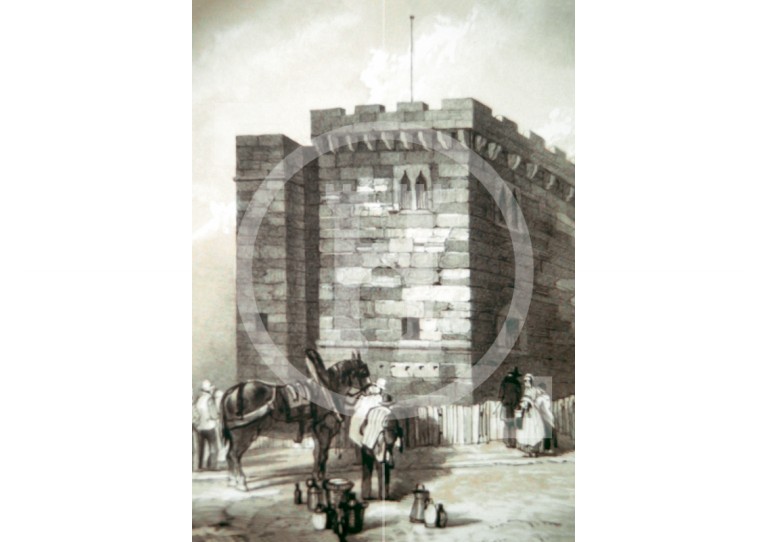Of Liverpool's prisons there had been many complaints over the years and, in 1784, following a report of the Grand Jury 'that the present Common Gaol (the old Tower in Water Street) was totally insufficient for the purposes intended and that there was great reason to dread the most alarming consequences from its present confined situation', two fields near the canal in Great Howard Street were purchased as a site for a new gaol.The Tower continued to be used as the town’s prison until 1811, although quite unfit and frequently condemned. John Howard visited it in 1775 and some slight improvements were made. Howard reported, 'The keeper of the Tower or Borough Gaol, which stood at the bottom of Water Street in 1803, was Mr. Edward Frodsham, who was also sergeant-at-mace. The Rev. Edward Monk was the chaplain. The sick were attended by a surgeon from the Dispensary, in consideration of 12 guineas per annum, contributed by the corporation. There was a sort of sick ward in the Tower, but it was a wretched place, being badly ventilated and extremely dirty. The prisoners were not classed, nor indeed separated; men and women, boys and girls, debtor and felon, young and old, were all herded together, meeting daily in the court-yards of the prison. The prison allowance was a three-penny loaf of 1 lb.3 oz. to each prisoner daily. Convicts were allowed 6d. per day. The Mayor gave a dinner at Christmas to all the inmates. The poorer debtors were allowed loose straw to lie on.The criminals were lodged in seven close dungeons 6 feet 6 inches by 5 feet 9 inches. These cells were ranged in a passage 11 feet wide, underground, and were approached by ten steps. Over each cell door was an aperture which admitted such light and air as could be found in such a place. The courtyards (one of which was 20 yards by 30, the other 20 yards by 10) were kept in a most filthy state, although a fine pump of good water was readily accessible. The yards were brick paved. In one yard I noticed a large dung heap, which, I was informed, was only removed once a month. The prison was dirty in the extreme; the mud almost ankle deep in some parts in the passages, and the walls black and grimy. The prisoners used to get up, on public ball nights, dances of their own, as the band could be plainly heard throughout the prison. The debtors used to let down a glove or bag by means of a stick, from their tower into the street, dangling it up and down to attract the notice of passers, who dropped in pieces of money for the use of the ""poor debtors"", which money was invariably spent in feasting and debauchery. The town boys used to put stones into the bags, and highly relished the disappointment of the ""poor debtors"".
Image details: WG Herdman


